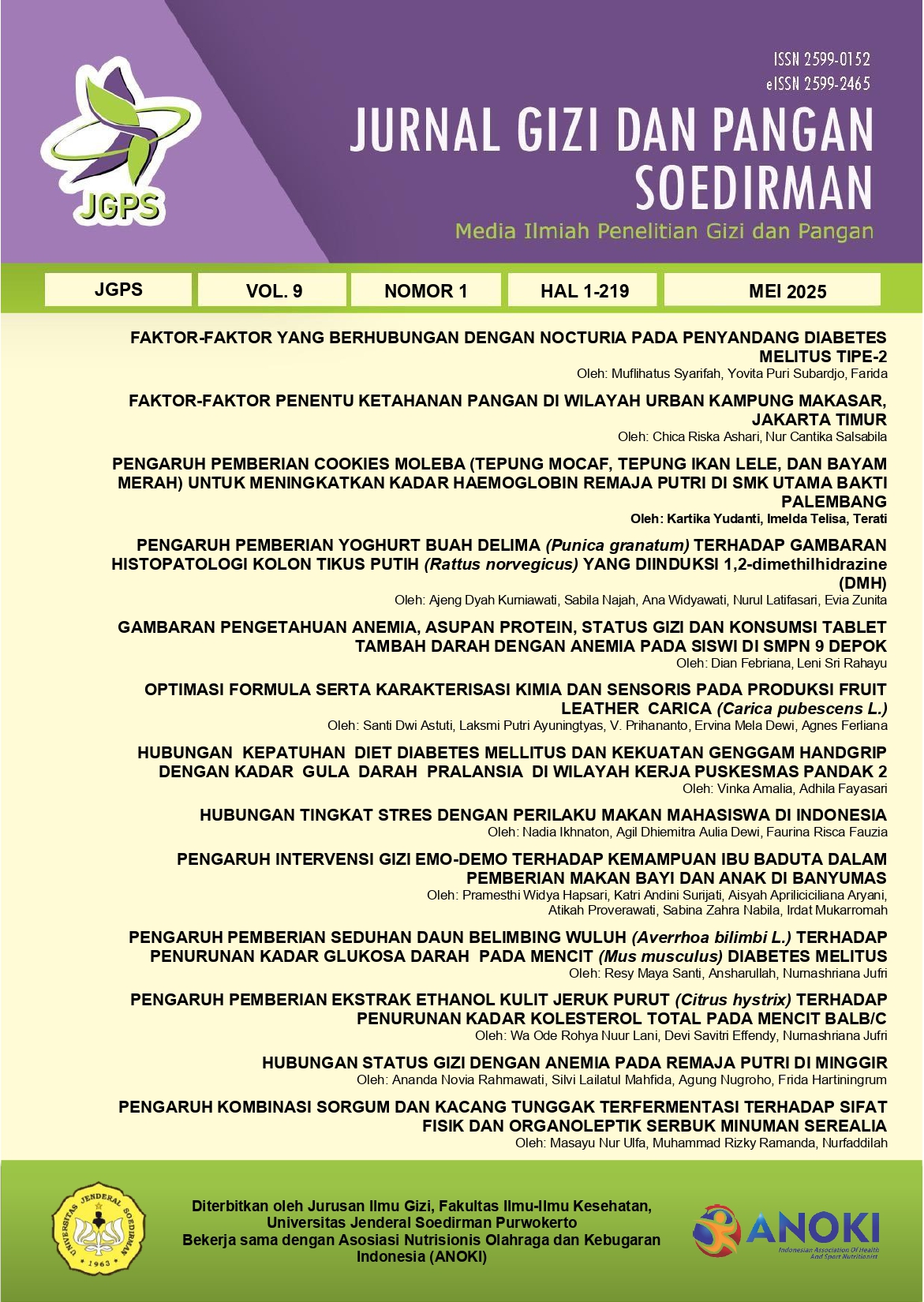FAKTOR-FAKTOR PENENTU KETAHANAN PANGAN DI WILAYAH URBAN KAMPUNG MAKASAR, JAKARTA TIMUR
Abstract
Food security is a condition of sufficient food availability for everyone at all times and every individual who has access to obtain it, both physically and economically. Many households experience food insecurity, due to unequal ability to access food and lack of food availability in households caused by poverty. The occurrence of food insecurity can be influenced by several factors, including low socio-economic status, the level of food consumption, especially energy and protein, which will have an impact on the lack of diversity of food consumed. This research aim to see the relationship between socio-economic status, levels of energy and protein consumption and coping strategies on food security. This research is a quantitative study with a cross sectional design and analyzed using the Chi-Square test. The sample was determined using simple random sampling and a sample of 81 housewives aged 25-45 years were obtained. Data collection was carried out using the HFIAS questionnaire, RCSI, 2x24 hour Recall and interviews. The results showed that 66% of respondents experienced food insecurity, which shows that there is a relationship between recent education (p = 0.000), knowledge (p = 0.000), employment (p = 0.000), income (p = 0.000), level of energy and protein consumption (p = 0.000) with Food Security in Makasar Village, East Jakarta. The research results also show that there is no relationship between Coping strategy (p = 1,000) and food security in Makasar Village, East Jakarta. It was found that there is a strong relationship between food security and education, knowledge related to nutrition, employment, income, and levels of energy and protein consumption.
























